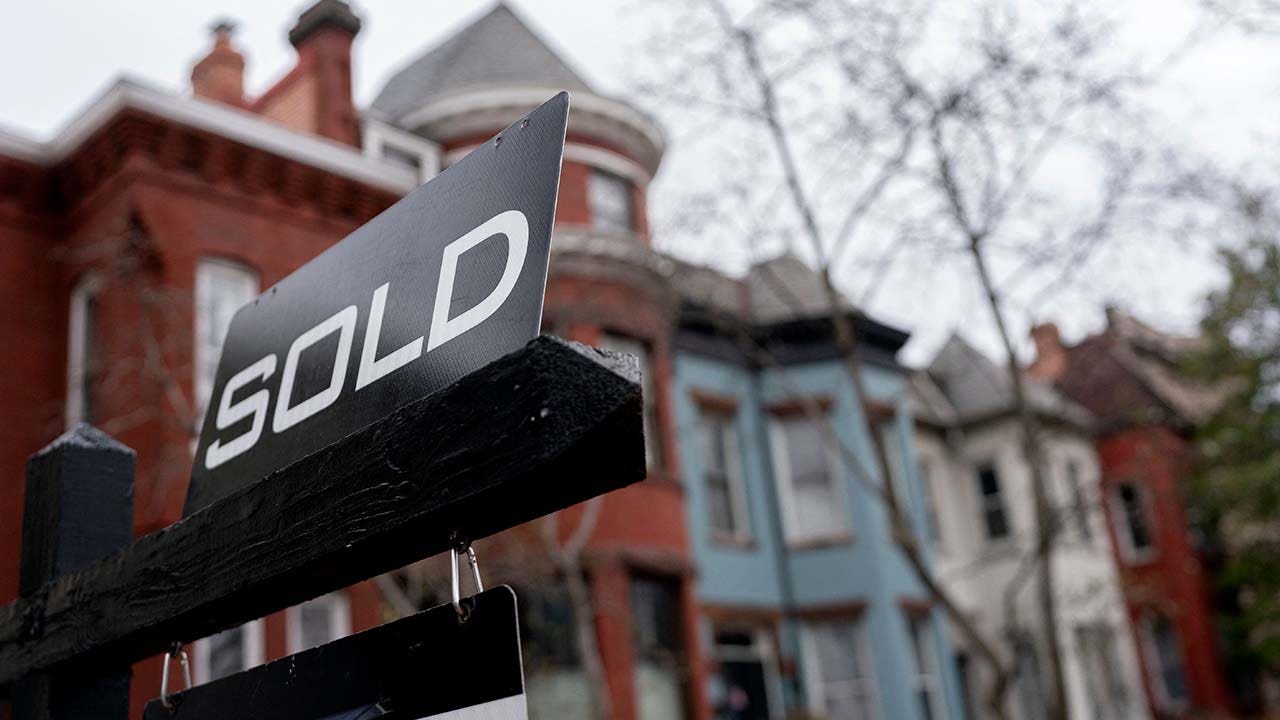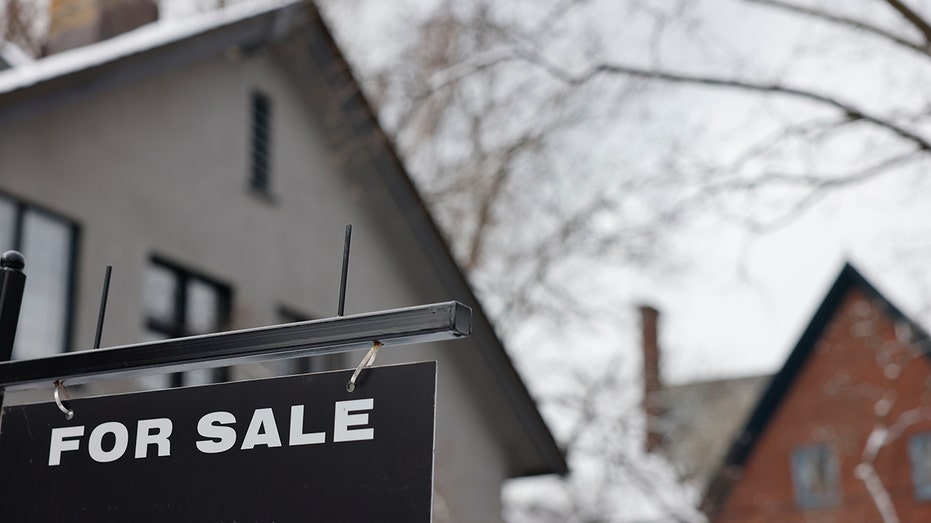
Vestre Partners CEO Jarrod Guy Randolph discusses the recent spike in mortgage rates on ‘Cavuto: Coast to Coast.’ #foxbusiness #cavuto
Sales of new U.S. single-family homes unexpectedly fell in February after mortgage rates increased during the month, but the underlying trend remained strong amid a chronic shortage of previously owned houses on the market.
The report from the Commerce Department on Monday also showed the median new house price last month was the lowest in more than 2-1/2 years, while supply was the highest since November 2022. Builders are ramping up construction, while offering price cuts and other incentives as well as reducing floor size to make housing more affordable.
“Housing activity is stabilizing as homebuilders appear to be building cheaper, and therefore, likely smaller homes,” said Conrad DeQuadros, senior economic advisor at Brean Capital. “Sales have been relatively stable at December’s level over the last two months and prices have been falling at mid-single-digit rates on a year-over-year basis.”

‘SOLD With Multiple Offers’ real estate sign near purchased house indicates hot seller’s market in a desired neighborhood. (iStock / iStock)
New home sales slipped 0.3% to a seasonally adjusted annual rate of 662,000 units last month, the Commerce Department’s Census Bureau said. The sales pace for January was revised up to 664,000 units from the previously reported 661,000 units.
TO RENT OR TO BUY? WHAT TO CONSIDER WHEN DECIDING BETWEEN A HOUSE OR APARTMENT?
Economists polled by Reuters had forecast new home sales, which account for 13.1% of U.S. home sales, would rise to a rate of 675,000 units. New home sales are counted at the signing of a contract, making them a leading indicator of the housing market. They, however, can be volatile on a month-to-month basis. Sales advanced 5.9% on a year-on-year basis in February.
The new homes market has defied 525 basis points worth of interest rate hikes from the Federal Reserve since March 2022, bolstered by a dearth of previously owned houses for sale.
The overall housing market has likely turned the corner, with home resales surging to a one-year high in February. Nonetheless, supply remains inadequate, keeping house prices elevated and homeownership out of the reach of many.

A view of houses in a neighborhood in Los Angeles, California, on July 5, 2022. – While two years of a booming US housing market brought wealth to many, a shortage of housing is making home ownership unaffordable for millions of Americans with prices ((Photo by FREDERIC J. BROWN/AFP via Getty Images) / Getty Images)
The average rate on the popular 30-year fixed-rate mortgage jumped to 6.94% in late February, before retreating to just below 7.0% by mid-March, according to data from mortgage finance agency Freddie Mac. The U.S. central bank is expected to start cutting rates sometime this year.
Stocks on Wall Street were trading lower. The dollar rose against a basket of currencies. U.S. Treasury prices fell.
UPBEAT OUTLOOK
Last month, new home sales plunged 31.5% in the Northeast and declined 2.4% in the Midwest. Sales in the densely populated South increased 3.7% and climbed 2.3% in the West.
“It’s worth noting that mortgage rates rose from 6.8% to 7.0% in the same month, which probably put some buyers off entering the market,” said Thomas Ryan, property economist at Capital Economics. “We’re sticking with our upbeat forecast for new home sales over the next few years.”
TIME TO SELL YOUR HOME? HERE ARE 3 QUESTIONS TO ASK YOURSELF
A survey from the National Association of Home Builders last week showed a measure of sales over the next six months rising to a nine-month high in March. A gauge of prospective buyers was the highest since last August.
The median new house price in February was $400,500, the lowest since June 2021 and a 7.6% drop from a year ago.
Economists welcomed the decline in the median new house price, which they said bode well for both affordability and inflation. Housing, through higher rents, has accounted for much of the increase in inflation.
Overall house prices, however, continue to rise because of the supply squeeze in the home resales market.
Most of the new homes sold last month were in the $300,000-$399,000 price range. The government reported last week that housing completions hit their highest level in 17 years in February. More new home supply is in the pipeline, which could further dampen house price inflation.

TORONTO, ON – March 13 – A FOR SALE sign is displayed outside a property on Elm Ave. in Toronto. Lance McMillan/Toronto Star March-13-2023 (Lance McMillan/Toronto Star via Getty Images) ((Lance McMillan/Toronto Star via Getty Images / Getty Images)
There were 463,000 new homes on the market at the end of February, the most since November 2022. That was up from 457,000 units in January. At February’s sales pace it would take 8.4 months to clear the supply of houses on the market, up from 8.3 months in January.
REAL ESTATE EXPERT’S ADVICE TO HOMEBUYERS: ‘DON’T BUY’ YOUR AMERICAN DREAM HOME NOW
Houses under construction accounted for 58.7% of inventory. Homes yet to be built made 22.9% of supply, while completed houses accounted for 18.4%.
“Rate incentives from builders are still able to ease the financial burden for buyers and have made new homes more appealing, but it’s unknown for how long builders can continue to offer such incentives,” said Daniel Vielhaber, an economist at Nationwide.




